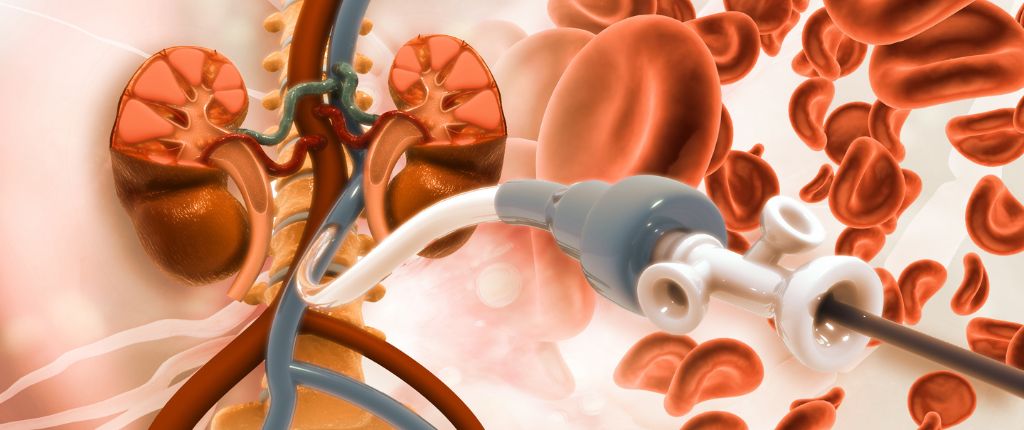Understanding Peripheral Arterial Disease (PAD) and Common Treatments
Peripheral Arterial Disease (PAD) is a chronic condition that is characterized by the accumulation of plaque, narrowing the arteries, often in the legs. This plaque is typically caused by atherosclerosis, which is the hardening of the arteries due to the gradual buildup of cholesterol and scar tissue, leading to reduced blood flow or complete obstruction of the artery. Since it is a systemic condition, individuals with atherosclerosis are more likely to have blocked arteries in other parts of their body, increasing their risk of heart disease and stroke. To confirm the diagnosis of PAD, your doctor may conduct an ankle blood pressure measurement (Ankle-Brachial Index, ABI) or CT Angiogram as the symptoms of PAD may overlap with those of other conditions.
- The Center for Disease Control reports that in the U.S., PAD affects 12-20% of individuals aged 60 and older, indicating a significant prevalence of the condition in this demographic.
- According to the Society for Vascular Surgery, over 10 million people in the U.S. are affected by PAD, making it a relatively common condition.

Why Choose Us for Peripheral Arterial Disease Treatment?
NEPA Vascular offers both minimally invasive and Surgical Treatments for patients diagnosed with Peripheral Arterial Disease (PAD).
Common Symptoms of Peripheral Arterial Disease
- Cramping of the leg or hip during activity (Claudication)
- Numbness, tingling and fatigue in lower legs and feet
- Leg or foot sores that won’t heal
- Coldness or color change in skin of legs or feet
- Muscle atrophy, hair loss and smooth shiny skin on legs
- Leg or foot pain that awakens you at night

Keep Informed. Take Care.
More than 8.2 Million Americans Will experience a Non-Healing Wound In Their Lifetime. Hyperbaric Oxygen Therapy Can Help!
Exploring Peripheral Arterial Disease Treatment Options
At NEPA Vascular, we offer a wide range of minimally invasive treatments tailored to address various aspects of Peripheral Arterial Disease:
Angioplasty and Stenting: Angioplasty involves the insertion of a small balloon into the narrowed artery, which is then inflated to widen the vessel and improve blood flow. In some cases, a stent may be placed to keep the artery open, preventing it from narrowing again.
Atherectomy: This procedure involves using a specialized catheter equipped with a cutting device to remove plaque from the artery walls, effectively restoring blood flow.
Peripheral Bypass Surgery: In more severe cases of PAD, Dr. Anderson may recommend peripheral bypass surgery. This procedure involves creating a detour around the blocked artery using a graft, restoring proper blood flow to the affected area.
Additionally, Hyperbaric Oxygen Therapy (HBOT) may be offered as an adjunct treatment. HBOT involves breathing pure oxygen in a pressurized chamber, which can stimulate the body's natural healing processes and promote tissue repair in patients with non-healing wounds or ulcers often associated with advanced PAD.
Angioplasty
Angioplasty plays a crucial role in the management of Peripheral Vascular Disease (PVD), a condition characterized by narrowing or blockages in the arteries outside of the heart, commonly affecting the legs. This minimally invasive procedure is employed to restore blood flow in these compromised arteries, mitigating symptoms such as leg pain, cramping, and numbness. Through a catheter-based approach, a deflated balloon is carefully navigated to the site of the arterial narrowing, guided by imaging technologies like angiography. Upon reaching the affected area, the balloon is inflated, exerting pressure on the plaque deposits and widening the artery. By improving blood flow to the legs, angioplasty not only alleviates discomfort but also helps prevent complications like tissue damage or limb loss. In some instances, the placement of a stent may be necessary to support the newly opened artery and maintain its patency. Angioplasty's effectiveness in treating PVD lies in its ability to restore circulation and enhance patients' quality of life, offering a minimally invasive alternative to more invasive surgical procedures.
Seek Help From NEPA Vascular
If you or a loved one is experiencing symptoms of Peripheral Arterial Disease, the specialized team at NEPA Vascular is here to provide expert care and effective treatments. To schedule a consultation visit our website or call (570) 616-8589. During your appointment, we will conduct a comprehensive evaluation of your vascular health, discuss the most suitable treatment options for your condition, and address any questions or concerns you may have. Our patient-centric approach ensures that you receive personalized attention and optimal outcomes throughout your Peripheral Arterial Disease treatment journey. Don't let Peripheral Arterial Disease hinder your mobility and vascular health. Experience the expertise and support of NEPA Vascular, where we are committed to making a positive impact on your well-being. Contact us today and take the first step towards renewed vitality and improved vascular function.
